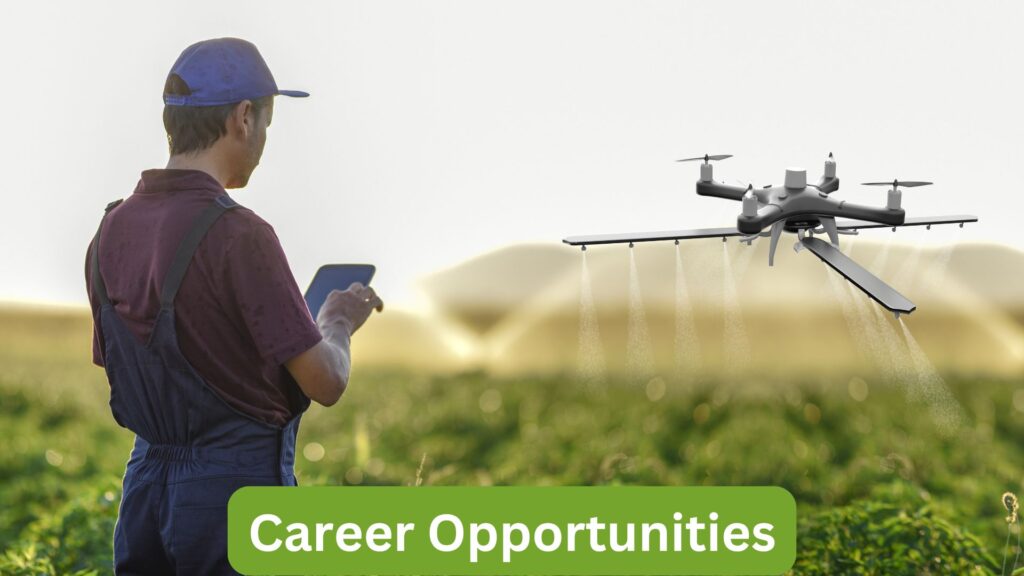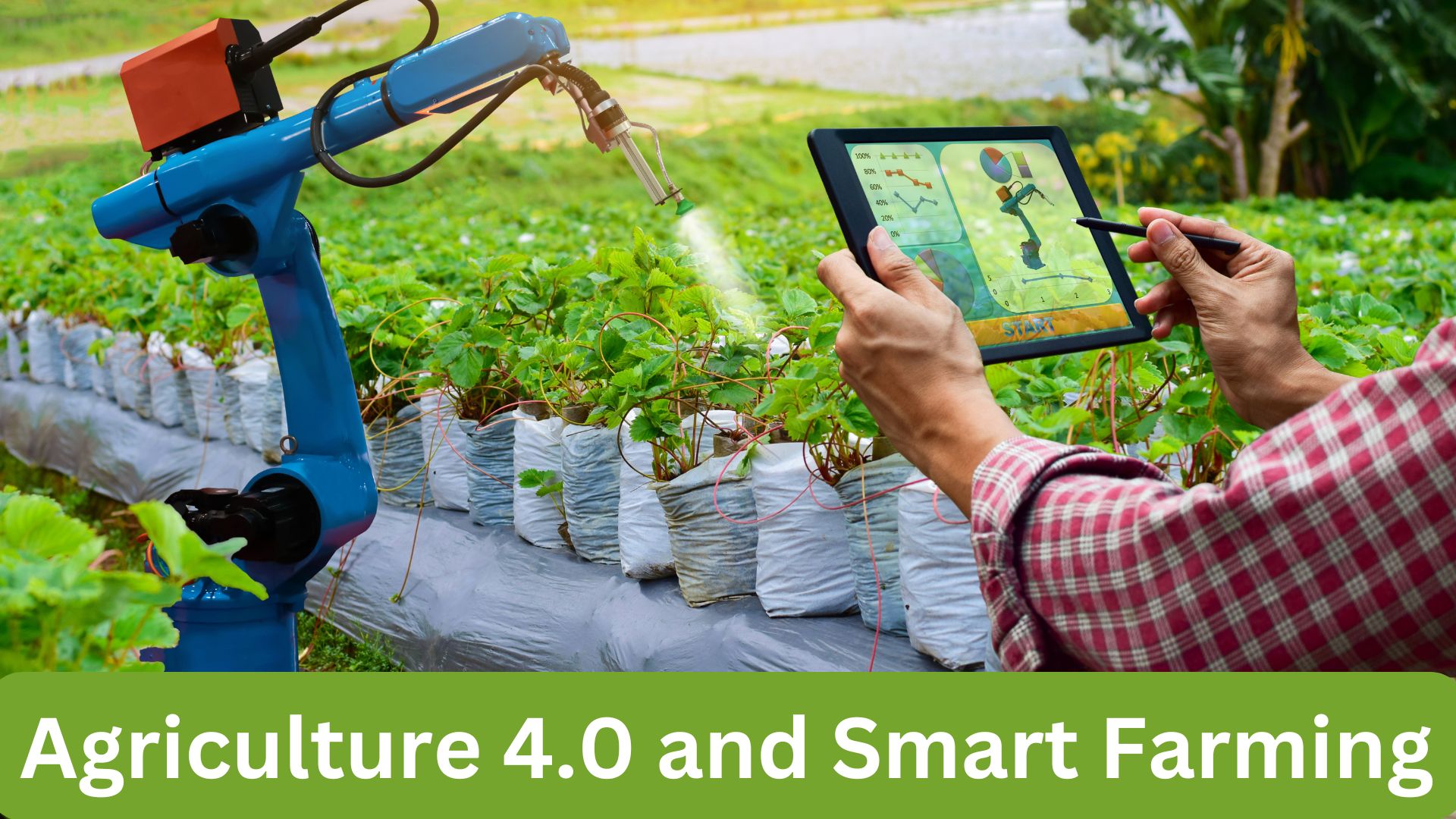Introduction
In today’s time, tremendous changes are taking place in farming and agriculture sector. Terms like Agriculture 4.0 and Smart Farming are highlighting the future of farming. These two concepts have emerged from the blend of modern technology and traditional farming. In Agriculture 4.0, new methods, such as IoT (Internet of Things), AI (Artificial Intelligence), drones , robotics , smart irrigation , cloud computing , biotechnology , and data analytics are used, which brings a new twist to the agriculture sector. In this article, we will give detailed information about Agriculture 4.0 and Smart Farming , including its advantages, disadvantages, career opportunities, and future prospects.
Agriculture 4.0: What is it?
Agriculture 4.0 is a new agricultural revolution that makes agricultural processes smart and efficient by using the Internet of Things , Artificial Intelligence , and other cutting-edge technologies. It goes a step ahead of traditional farming and provides technological solutions to farmers. This not only increases production but also makes better use of resources, putting less pressure on the environment.
Smart Farming: How Does It Work?

image credits: canva.com
The main objective of smart farming is to make farming more automated and precise . In this, every aspect of agriculture is monitored and controlled through data. Tools like smart irrigation , crop data analytics , and automated tractors help farmers manage their farms better.
IoT (Internet of Things) and Smart Farming
IoT is used to connect various devices in the farms and collect data. For example, soil moisture, temperature, and other important factors are monitored with the help of smart sensors. This ensures that resources are used properly and allows farmers to make the right decisions in real-time.
AI and Machine Learning
AI and machine learning are used to make predictions and processing based on crop patterns and weather . Through this, crop diseases and pests can be predicted and farmers can be warned immediately.
Benefits of Agriculture 4.0
1. Increased production
Agriculture 4.0 increases production by using technologies such as precision agriculture and smart irrigation . Data-based decisions and automated processes help improve crop health and get more yield.
2. Saving of resources
It makes better use of water , energy and pesticides . For example, smart irrigation technology only supplies water where it is needed, thus saving water.
3. Less pressure on the environment
Through biotechnology and smart farming , the use of chemical fertilizers and pesticides is reduced, which puts less pressure on the environment. This not only increases biodiversity , but also maintains the quality of water and soil.
Disadvantages of Agriculture 4.0
1. High initial cost
Agriculture 4.0 uses cutting-edge technologies, which have a very high initial cost. Farmers have to invest heavily in equipment, software, and data storage.
2. Technical problems
Every technology comes with some problems. There can be problems like internet connectivity , software bugs and hacker attacks , which can affect the production process of farmers.
3. Lack of skills
Agriculture 4.0 requires farmers to have technical knowledge. Currently, many farmers find it difficult to understand these new technologies and they need training in this direction.
Career Opportunities in Agriculture 4.0

image credits: canva.com
Agriculture 4.0 and Smart Farming are creating many new career opportunities. This includes technical and agriculture-related jobs. Some of the major career options include:
1. Data Scientist
Data scientists are needed to understand agricultural data and make decisions based on it . This is a rapidly growing field, in which data analytics and machine learning are used.
2. Smart Farming Consultant
In this role, you will advise farmers about the tools and techniques of Smart Farming . For this, you must have both agricultural and technical knowledge.
3. Robotics Engineer
Robotics has become increasingly important as automation in agriculture has increased . Robotics engineers design and maintain robots, drones, and other automated equipment in agriculture.
The future of Agriculture 4.0
The future of Agriculture 4.0 is bright. In the coming times, technologies like artificial intelligence , blockchain , cloud computing and robotics will be used more effectively in farming. Farmers will get more accurate data, which will enable them to make better decisions and increase production.
With the advent of Smart Farming and Agriculture 4.0, greenery in agriculture will increase and we will move towards sustainable agriculture . This technology will not only be beneficial for farmers, but will also prove to be beneficial for the entire world.
Conclusion
The advent of Agriculture 4.0 and Smart Farming is set to give a new direction to farming. It is challenging traditional farming and bringing technology and innovation to the field of agriculture. Its benefits are clear, but it is also necessary to understand the challenges that come with it. Career opportunities in this field are also increasing, which can be a good opportunity for the youth. The aim of these changes in the agriculture sector is more stability and productivity, making development possible overall.
FAQs
1. What are Agriculture 4.0 and Smart Farming?
Agriculture 4.0 is a new technological revolution that transforms traditional farming practices through the latest digital technologies, such as the Internet of Things (IoT), Artificial Intelligence (AI), robotics, and Big Data. It aims to make agricultural production more efficient, environmentally friendly, and sustainable. Smart Farming is a part of Agriculture 4.0, in which the farming process is automated and made smart by using technological tools.
2. What are the benefits of smart farming?
There are many benefits of smart farming:
- Increased production: With the help of smart devices, farmers can better estimate crop growth, soil quality, and water needs.
- Lower costs: Better management of resources leads to reduction in costs.
- Environmental impact: Natural resources can be used more efficiently through Agriculture 4.0 techniques, putting less pressure on the environment.
- Time savings: Automated systems make farm operations faster and easier.
3. Does Agriculture 4.0 require new technical knowledge from farmers?
Yes, Agriculture 4.0 requires new technical knowledge from farmers. Farmers need training and proper education to properly use smart farming equipment and techniques such as drones, sensors, and cloud computing. For this, the government and private institutions are also running many training programs.
4. Which technologies are used under Agriculture 4.0?
Several technologies are used under Agriculture 4.0:
- Internet of Things (IoT): This technology uses various sensors and devices in farms that collect data on soil moisture, temperature, and plant conditions.
- Artificial Intelligence (AI): AI is used to analyze patterns and trends, helping farmers make better decisions.
- Robotics: Robots working in agriculture are used for processes such as pest control, plant monitoring, and harvesting.
5. Is it possible to adopt Agriculture 4.0 in India?
Adoption of Agriculture 4.0 is possible in India, but there are some challenges to it. Making the farmer community aware of new equipment and techniques, lack of infrastructure, and financial support are required. However, the government and private companies are taking steps in this direction, and slowly farmers are moving towards adopting modern agricultural practices.

